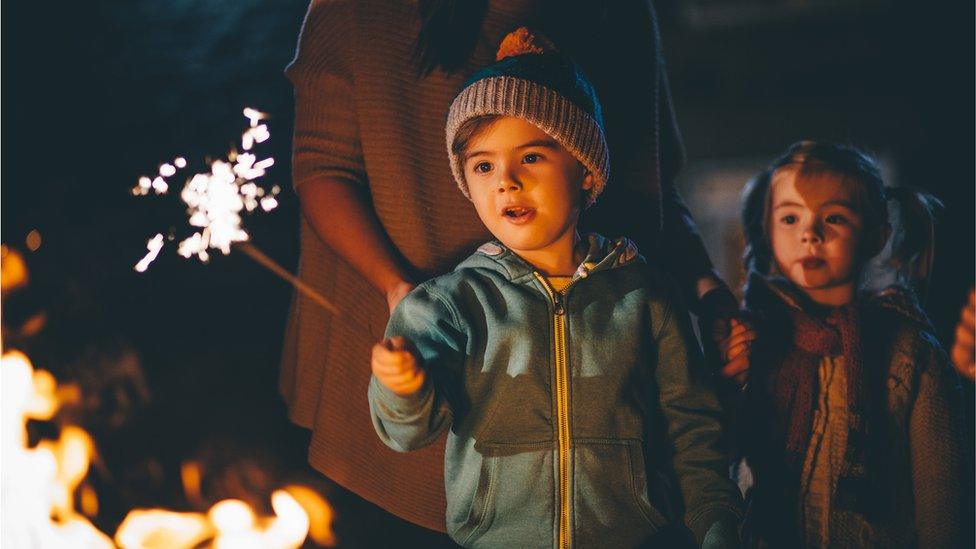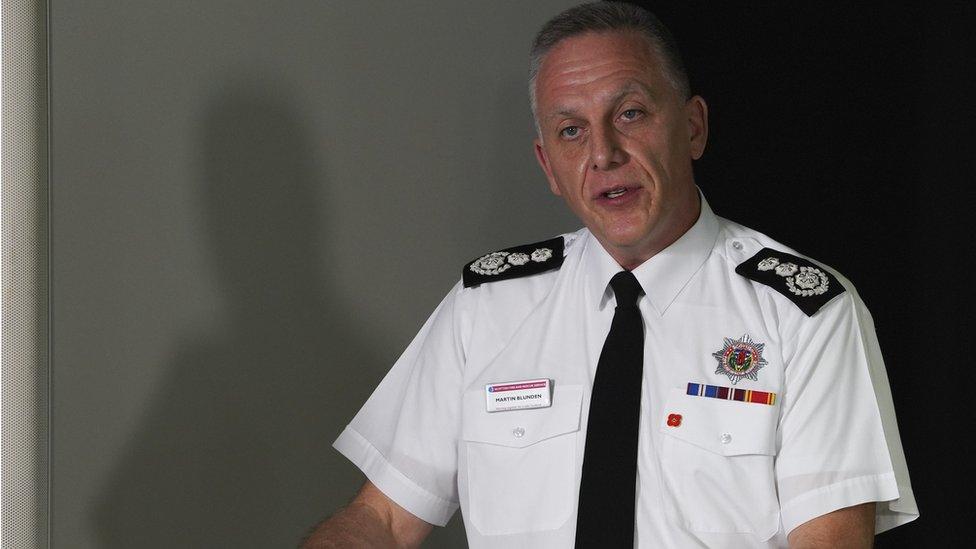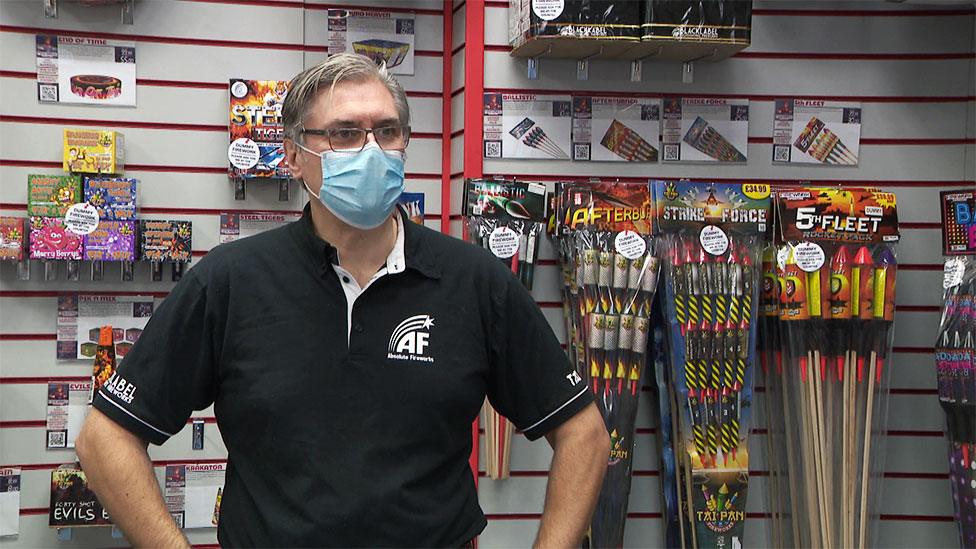Fire chief in safety warning over back-garden fireworks displays in Scotland
- Published

More families are expecting to setting off fireworks at home this year
An increase in unofficial firework displays during the Covid pandemic could heap more pressure on fire crews, the fire service has warned.
The Scottish Fire and Rescue Service normally advises people to celebrate at an organised public display.
But with events cancelled due to the pandemic, more people are expected to light fireworks at home.
Fire chiefs have issued safety advice, external and urged people to act responsibly this Bonfire Night.
They said fire crews can be up to four times busier on 5 November, and last year they responded to 760 incidents over 24 hours.
Six firefighters were also attacked as they dealt with call-outs but none of them were injured.
Earlier this week Police Scotland said riot police had been placed on standby in case of violence and disorder this year.
Martin Blunden, the chief officer of Scotland's fire service, said Bonfire Night would "feel very different this year".
Speaking at the first minister's daily coronavirus briefing on Wednesday, he asked people to follow guidance on avoiding gatherings of more than six people from two household to watch private displays.
He said 540 of the incidents they attended last Bonfire Night were between 17:00 and midnight, and 90% were "deliberate incidents or deliberate fires".

Fire chief Martin Blunden issued safety advice ahead of Bonfire Night
"If you thinking of having a private display, be kind," he said.
"Think about those with sensory impairments or with neurological differences such as autism. Think about older people, think about those with pets and those people who may be affected by your display."
Most fireworks-related injuries happen at private displays, and children are more likely to be affected, according to Scottish government research. , external
Hand, head and neck injuries are the most common, caused by burns or the force of blasts.
Mr Blunden added: "It's very important that we do everything to reduce the strain on the emergency services during this time to make sure that we're available for other emergencies as they occur.
"The consequences of accidents involving fireworks are often life-changing and it's often in the private displays where we see these sort of things happening."
He said people should familiarise themselves with guidance on the Fire Scotland website, external to ensure their display is safe.
Meanwhile one fireworks retailer told BBC Scotland that sales were up 10-20% this year as more people prepared to put on private displays.

Fraser Stevenson has seen an uptick in fireworks sales
Fraser Stevenson, the co-owner of Fireworks Superstore in Glasgow, said 80% of their annual business is normally done on 5 November every year.
They have already seen an increase in sales over the last few weeks but they are expecting another busy Bonfire Night.
"There's been a bit of an increase from people who would normally go to a traditional display but because these events are cancelled, they still want to do something with their family at home," he said.
The Scottish government announced plans for a "fundamental shift" in the way people buy and use fireworks earlier this week.
It will mean people who buy fireworks will have to do safety training, pay a fee and say when and where they will be used.
"No fireworks zones" could also be enforced under plans announced by Community Safety Minister Ash Denholm at Holyrood on Tuesday.